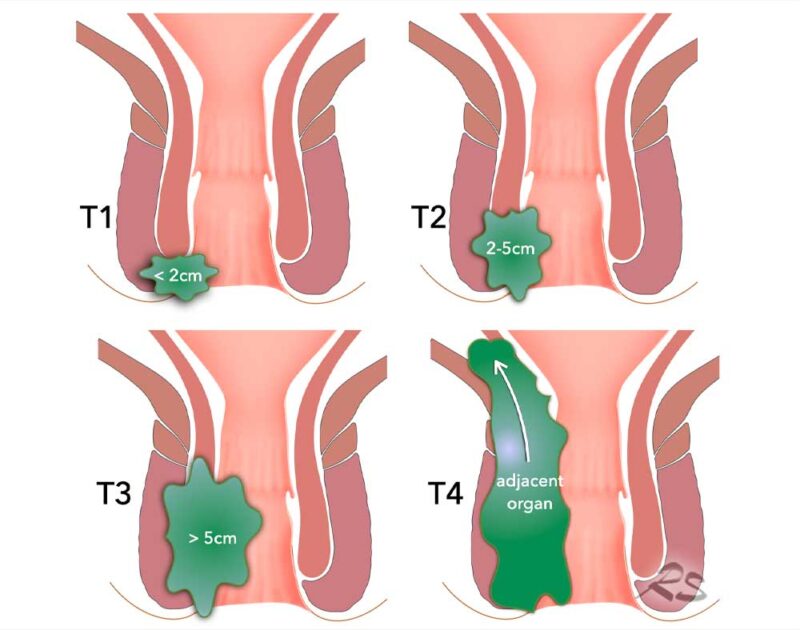
Marcia Cross and Anal Cancer: How She Went Against, How She Survived, and More
Marcia Cross is an accomplished actress best known for her role as Bree Van de Kamp on the hit series Desperate Housewives (2004-2012). She began her career in daytime soap operas like The Edge of Night and One Life to Live, before gaining prominence in prime-time dramas such as Melrose Place and Everwood. Following her diagnosis of anal cancer in 2018, Cross has become a health advocate, using her experience to raise awareness about this often-stigmatized disease. Her openness has encouraged others to seek medical advice without fear or embarrassment, significantly contributing to the destigmatization of anal cancer.

How Did Marcia Cross Get Diagnosed with Anal Cancer?
Marcia Cross’s anal cancer was discovered during a routine gynecological visit in 2018, when a digital rectal exam revealed a cancerous mass. At that time, she had no symptoms, highlighting the importance of regular screenings. This proactive approach to health was influenced by her husband Tom Mahoney’s battle with throat cancer, which involved similar HPV-related risks. Doctors suspect that both Cross’s and Mahoney’s cancers may have originated from the same strain of HPV, underscoring the virus’s role in anal cancer development.
Symptoms
When symptoms do present, they can include rectal bleeding, pain, itching, and changes in bowel habits. These symptoms are frequently mistaken for less serious conditions such as hemorrhoids, anal fissures, or inflammatory bowel disease (IBD). Many individuals may overlook these signs or attribute them to common digestive issues, delaying diagnosis and treatment.
What Were Marcia Cross’ Initial Reactions to Her Diagnosis?
Marcia Cross’s emotional response to her diagnosis of anal cancer in 2017 was profound and complex. Initially, she experienced a whirlwind of feelings upon receiving the news, describing it as a moment that took her “from being in la-la land, literally, to what!?” This shock was compounded by the stigma surrounding anal cancer, which she openly addressed in interviews. Cross has stated,
“I know there are people who are ashamed. You have cancer! You have to then also feel ashamed? Like you did something bad, you know, because it took up residence in your anus? I mean, come on, really. There’s enough on your plate”
What Was the Prognosis?
At the time of her diagnosis, the cancer was classified as stage II, indicating that it had spread beyond the anal canal but not to distant organs. This staging significantly influenced her treatment options and prognosis, as stage II anal cancer typically requires a combination of radiation and chemotherapy. According to the American Cancer Society, the five-year relative survival rate for localized anal cancer is approximately 80%, while for regional cases, it drops to about 60%.
What Treatments Did Marcia Cross Undergo?
Marcia Cross underwent a challenging treatment regimen for her anal cancer diagnosis in 2017, which included 28 sessions of radiation therapy and two weeks of chemotherapy. The treatments resulted in significant physical side effects, such as painful mouth sores, gastric issues, and skin reactions.
Radiation and Chemotherapy
The side effects of Cross’s cancer treatments were intense. She described chemotherapy as “gnarly,” causing painful mouth sores, severe gastric issues, and skin reactions from radiation. One unexpected effect was hair loss, later linked to acute telogen effluvium, a stress response. To manage, Cross used heavy creams for her skin, refrigerated aloe vera for soothing, and adjusted her diet to include nutritious smoothies while avoiding foods that aggravated her symptoms.
How Did Marcia Cross Overcome Anal Cancer?
Marcia Cross’s journey of overcoming anal cancer is marked by resilience, determination, and the unwavering support of her family and friends. Throughout her battle with cancer, Cross drew strength from her support system, referring to her close friends as her “anal angels.”
Support from Family and Friends
Marcia Cross’s journey through anal cancer was profoundly influenced by the support of her family, particularly her husband, Tom Mahoney, who himself battled throat cancer. Their shared experiences with cancer created a unique bond that helped them navigate the emotional and physical challenges of their diagnoses. Having cared for him during his treatment in 2009, she felt somewhat prepared for her own battle. Cross reflected on this connection, saying,
“When Tom was diagnosed, I thought, ‘Oh my god, I never thought my history with this was ever going to be something positive.’ It helped me to take care of Tom, and by the time it got to me, it was kind of old hat”

Marcia Cross with her Throat cancer survivor husband
Mental and Emotional Challenges
After her diagnosis in 2017, she faced a range of emotions, from fear and anxiety to determination and resilience. Cross described moments of terror, stating,
“You have moments of terror but it’s beyond tears… you’re in fight mode”
One of the most challenging aspects for Cross was coping with the stigma surrounding anal cancer. She recognized that many individuals feel ashamed of their diagnosis, often due to societal perceptions about the diseaseCross’s reflections on life post-treatment reveal a profound transformation in her perspective. She emphasized that surviving cancer has made her “much kinder and a million times more loving to” herself. After receiving a clear scan, she confronted her inner critic, saying,
“That critical voice is no longer acceptable. It is no longer allowed. That is the real cancer”.
This shift in self-perception illustrates her journey toward mental resilience and self-acceptance.
How Did Advocacy and Public Awareness Help?
Marcia Cross, renowned for her role in “Desperate Housewives,” has emerged as a prominent advocate for anal cancer awareness, particularly highlighting its connection to human papillomavirus (HPV). Following her own diagnosis of anal cancer, which was revealed during a routine gynecological exam, Cross has actively sought to destigmatize discussions surrounding this often-taboo subject. She emphasizes that HPV is responsible for over 90% of anal cancers and advocates for the importance of HPV vaccination as a preventive measure.
Public Speaking and Advocacy
Marcia Cross has actively raised awareness about anal cancer and its link to human papillomavirus (HPV) through various public appearances and interviews. Notably, during an interview with CBS This Morning, she discussed her diagnosis and the stigma surrounding anal cancer, emphasizing the importance of regular screenings.Additionally, in an interview with Coping magazine, she shared her journey and the importance of openly discussing health issues to combat shame. Cross has also utilized her social media platforms to advocate for HPV vaccination, encouraging parents to protect their children from future cancers. Through these efforts, she aims to destigmatize anal cancer and promote education on HPV-related health risks.
Collaborations with Health Organizations
Marcia Cross has become a prominent advocate for cancer awareness, particularly focusing on HPV-related cancers, including anal cancer. She collaborates with various health organizations to promote education, prevention, and screening. As a celebrity ambassador for Stand Up To Cancer (SU2C), Cross uses her platform to raise public awareness and funds for cancer research, emphasizing the importance of early detection and lifestyle changes to combat cancer risk.
What Is Marcia Cross’ Life Like After Cancer?
Since completing her treatment for anal cancer in 2018, Marcia Cross has embraced a life of advocacy and personal growth while managing ongoing health challenges.Cross actively collaborates with health organizations to promote cancer prevention and education. Her candid discussions about her experience aim to destigmatize anal cancer, encouraging open conversations about symptoms that many might find embarrassing. She emphasizes the importance of regular medical checkups and HPV vaccinations, advocating for early detection as a crucial factor in successful treatment outcomes.
Continued Advocacy Work
Her advocacy is particularly focused on the link between HPV and various cancers, including anal cancer, which she has openly discussed to help destigmatize the disease.In recent public appearances, Cross has participated in events such as The Atlantic’s “People v. Cancer” conference, where she shared her personal journey and the importance of addressing the stigma surrounding anal cancer.

Ongoing Health Challenges
Marcia Cross has been open about the lasting effects of her anal cancer treatment, particularly regarding the side effects she experienced during chemotherapy and radiation. She reported suffering from painful mouth sores and gastrointestinal issues.” These side effects have made her more sensitive to her diet and overall health, prompting her to adopt a healthier lifestyle post-treatment. Cross emphasizes the importance of regular medical checkups, seeing her gastroenterologist every three months to monitor her health and ensure early detection of any potential issues.In addition to managing physical health challenges, Cross has made sun protection a priority to avoid skin cancer, stating, “I must prioritize this—I want to avoid skin cancer.”
What Causes Anal Cancer?
Anal cancer, though relatively rare, has several well-documented risk factors that contribute to its development. The primary cause is infection with the human papillomavirus (HPV), but genetics and certain lifestyle behaviors also play significant roles.

HPV and Anal Cancer
Human papillomavirus (HPV) is responsible for about 90% of anal cancer cases, with high-risk types 16 and 18 being most commonly linked to its development. In the U.S., around 8,000 new anal cancer cases are diagnosed annually, with rates rising due to increased recognition of HPV’s role. The HPV vaccine is highly effective at preventing infection and is recommended for all boys and girls aged 11 or 12, as well as young adults up to age 26. Vaccination is particularly important for higher-risk groups, such as men who have sex with men (MSM) and those living with HIV.
Lifestyle and Environmental Factors
Lifestyle factors such as smoking and a weakened immune system can significantly increase the risk of anal cancer, mainly because they impair the body’s ability to fight off HPV infections, the leading cause of the disease. Smoking damages DNA, weakens the immune system, and increases the likelihood of persistent HPV infections, which can lead to anal dysplasia and cancer. Smokers are more vulnerable to HPV-related cancers, including anal cancer.A weakened immune system, often caused by conditions like HIV, or medications for organ transplants, makes it harder for the body to clear HPV infections. People with compromised immunity, such as those living with HIV, are at higher risk for anal cancer.
How Can Anal Cancer Be Prevented?
Preventing anal cancer involves a combination of vaccination, regular screenings, and healthy lifestyle choices.
Regular Screenings and HPV Vaccination
HPV vaccination and regular screenings are key to preventing anal cancer. The HPV vaccine protects against high-risk strains (especially types 16 and 18), which cause most anal cancers, reducing the risk by up to 90%. The CDC recommends vaccinating boys and girls at age 11-12, and extending it to young adults aged 13-26. Regular screenings, such as anal Pap smears and high-resolution anoscopy (HRA), are vital for high-risk groups, like HIV-positive individuals and men who have sex with men (MSM), to detect precancerous lesions early. Early detection through screening, combined with vaccination, can dramatically reduce the risk of anal cancer.

Lifestyle Changes
- Quit Smoking: Smoking weakens immunity and increases HPV infection risk.
- Boost Immune Health: Eat a balanced diet, exercise regularly, and get the HPV vaccine.
- Practice Safe Sex: Use condoms or dental dams to reduce HPV transmission.
- Maintain a Healthy Weight: Regular exercise and a healthy diet help lower cancer risk.
- Limit Alcohol: Keep alcohol intake to one drink per day for women, two for men.
FAQs
What type of cancer did Marcia Cross have?
Marcia Cross was diagnosed with anal cancer in 2017, which she attributes to a strain of human papillomavirus (HPV) that may have also affected her husband, Tom Mahoney.
How did Marcia Cross find out about her cancer?
Cross discovered her cancer during a routine gynecological exam when her doctor felt something unusual and recommended further testing, leading to her diagnosis.
What treatments did Marcia Cross undergo for anal cancer?
She underwent 28 sessions of radiation therapy and two courses of chemotherapy, which resulted in significant side effects, including mouth sores and gastric issues.
How has Marcia Cross advocated for anal cancer awareness?
After her treatment, Cross became an outspoken advocate for raising awareness about anal cancer and HPV, aiming to destigmatize these topics and encourage open discussions about health.
What is Marcia Cross’s stance on HPV vaccination?
Cross strongly supports HPV vaccination as a preventive measure against various cancers, including anal cancer. She plans to vaccinate her twin daughters against HPV.
What impact has Marcia Cross had on public perceptions of anal cancer?
By sharing her story and experiences, she has helped reduce the stigma surrounding anal cancer, encouraging others to seek medical help without shame.
Is Marcia Cross involved with any health organizations?
Yes, she is involved with the HPV Cancers Alliance and other health organizations focused on cancer prevention and education regarding HPV-related cancers.
Was Marcia Cross involved in a controversial relationship before her marriage?
Yes, she dated actor Richard Jordan, who was 25 years her senior. Their relationship attracted attention due to the age difference, especially after Jordan’s death from brain cancer in 1993.
Did Marcia Cross face backlash for her comments on HPV and anal cancer?
Yes, after revealing her diagnosis, some critics questioned her decision to speak publicly about anal cancer, arguing it could make audiences uncomfortable. Cross defended her choice as necessary for education and breaking stigma.
Written by Aharon Tsaturyan, MD
-
Challenging the Status Quo in Colorectal Cancer 2024
December 6-8, 2024
-
ESMO 2024 Congress
September 13-17, 2024
-
ASCO Annual Meeting
May 30 - June 4, 2024
-
Yvonne Award 2024
May 31, 2024
-
OncoThon 2024, Online
Feb. 15, 2024
-
Global Summit on War & Cancer 2023, Online
Dec. 14-16, 2023
